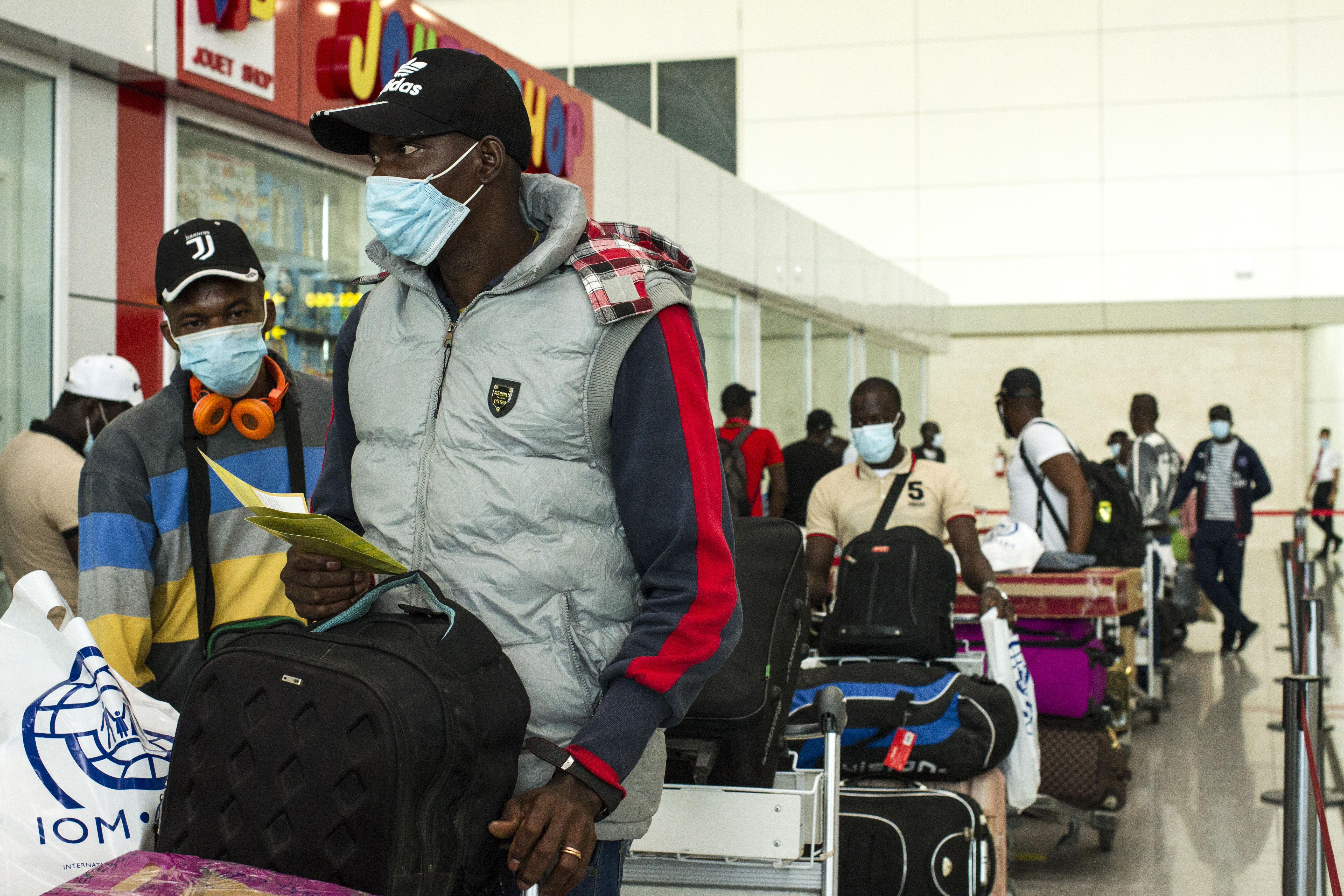Amid COVID-19 pandemic, IOM facilitates the return of 84 migrants from Algeria to Mali
Algiers, Bamako - This week (14/07), the International Organization for Migration (IOM) organized voluntary return by air from Algiers to Bamako, carrying 84 Malian nationals (73 men, 7 women, 2 boys, 2 girls) on their way home.
The voluntary return was made possible thanks to the agreement of Algerian and Malian authorities to temporarily lift travel restrictions and enable IOM to facilitate the safe return of stranded migrants.
The migrants approached IOM and the Malian Embassy since the breakout of COVID-19 pandemic with the request to return home to reunify with their families, as job opportunities became scarce and the need for support of primary needs increasingly acute. The voluntary return operation contributed to the protection of migrants and helped to overcome difficult living conditions during COVID-19.
Migrants residing outside of Algiers received inland transportation assistance and were accommodated at IOM run transit facilities (DARV), a government structure made available to IOM to accommodate migrants waiting to return to their Country of Origin. The inland movement was closely coordinated with and supported by relevant Algerian authorities.
IOM staff in Algeria implemented specific COVID-19 prevention measures in line with international, national, and IOM standards, which included check for any health conditions prior to and during travel as well as the distribution of COVID-19 kits and awareness-raising on COVID-19 prevention.
“The virus made me stuck in Algeria and delayed my return to Mali since the crisis started. I was waiting and hoping that things get back to normal so I could return home with my children,” said a Malian migrant.
Upon arrival in Bamako, migrants will be subject to the national prevention protocol, including a 14-day mandatory quarantine. After quarantine and testing for COVID-19, they will be able to return to their communities. IOM Mali will support them with in-kind reintegration assistance through the EU-IOM Joint Initiative for Migrant Protection and Reintegration (EU-IOM JI) depending on their needs, skills and aspirations. This encompasses medical assistance, psychosocial support, educational and vocational training, support for housing and other basic needs, as well as the set-up of income generating activities to assure a sustainable reintegration into the origin communities.
This voluntary and safe return was made possible thanks to financial contributions of several donors namely: (1) The European Union, through the EU-IOM Joint Initiative for Migrant Protection and Reintegration, which enables migrants who decide to return to their countries of origin to do so in a safe and dignified way; (2) Protection Services to Vulnerable and Stranded Migrants in and Transiting through North Africa (PROTECT Phase II) programme funded by the Kingdom of the Netherlands; and (3) Safety, Support and Solutions along the Central Mediterranean Route programme (Phase II) supported by the Department for International Development (DFID) of the United Kingdom.

